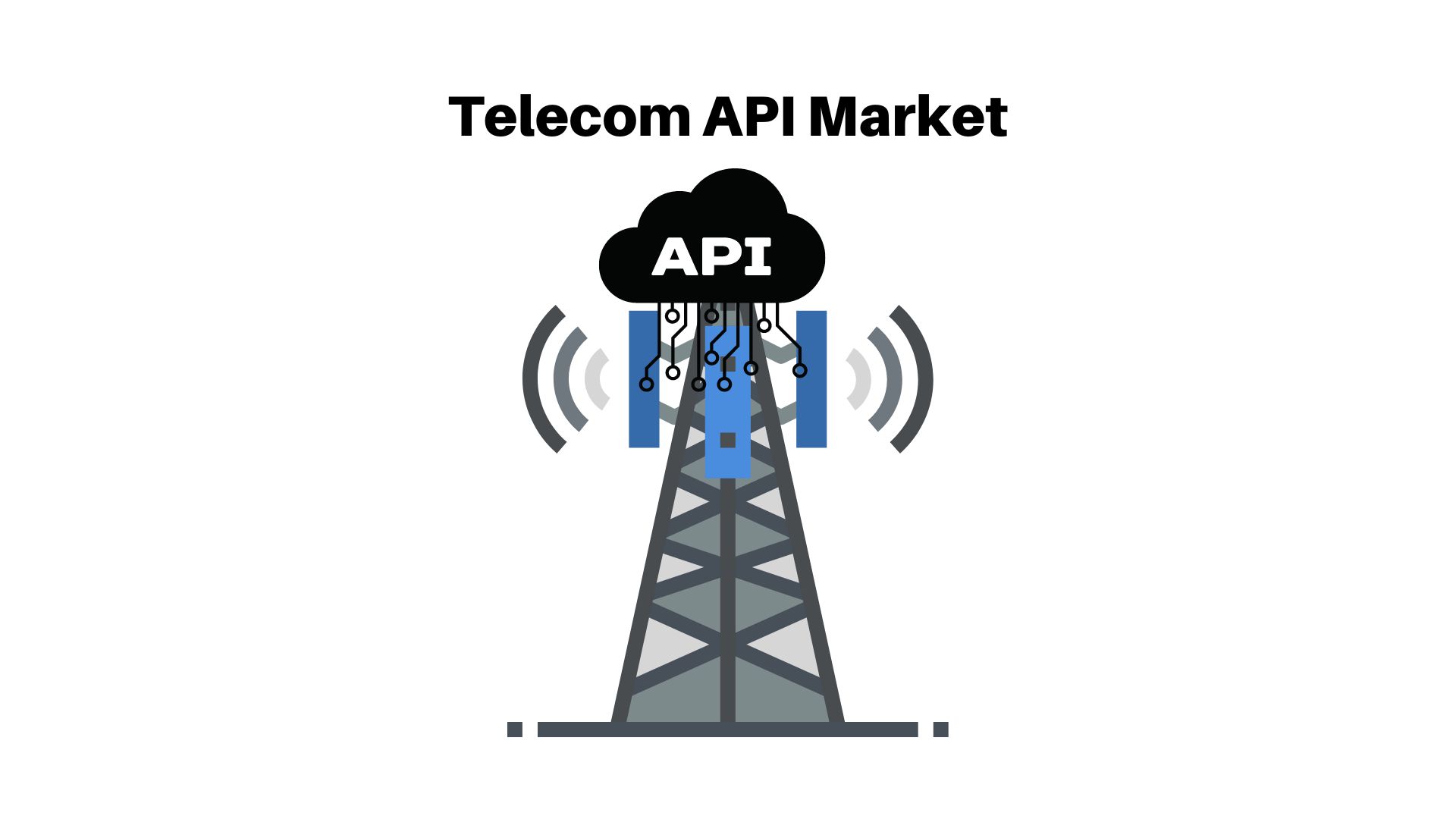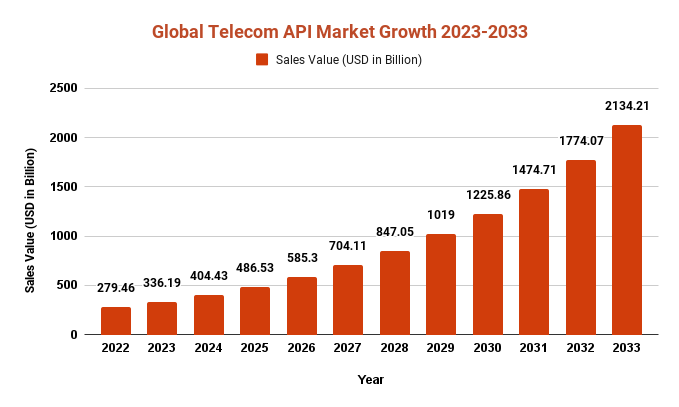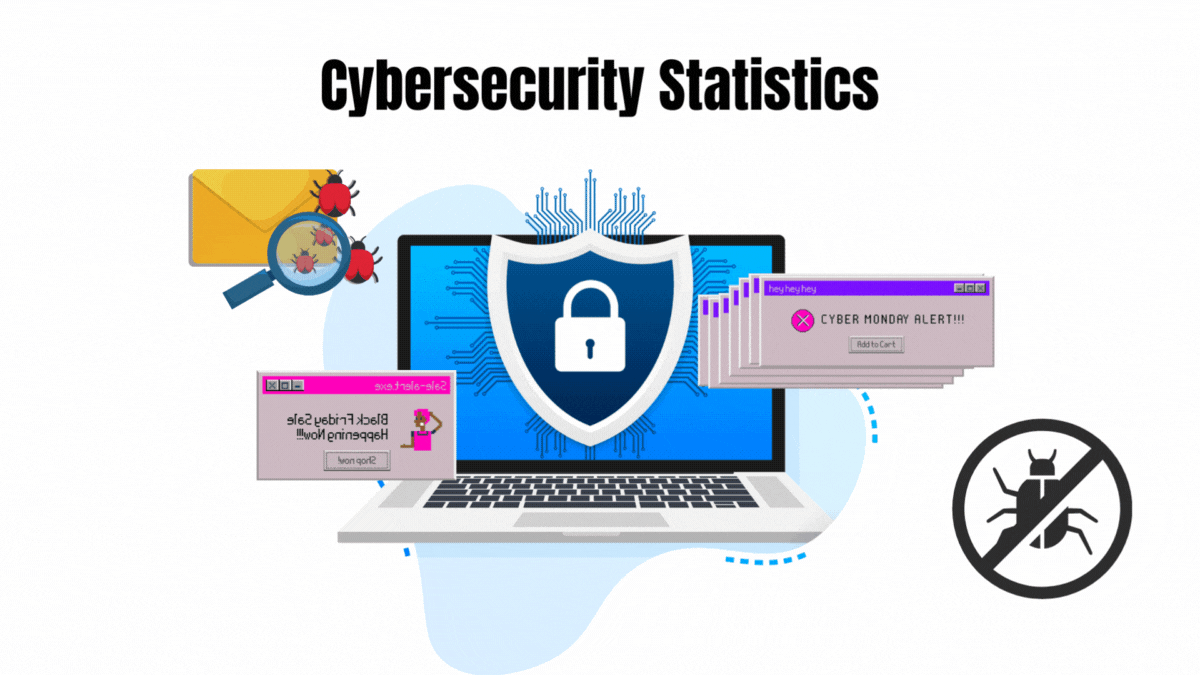Global Telecom API Market Set for Rapid Growth to Reach Around USD 2134.21 Bn by 2033

Page Contents
Market Overview
Published Via 11Press: Telecom API market: Telecom APIs (Application Programming Interfaces) are software interfaces that permit developers to access and interact with telecom network functionality and data, such as making phone calls, sending SMS, retrieving location data and managing connectivity. Telecom APIs Market can be utilized in constructing applications ranging from simple messaging apps to complex business communication solutions; they offer developers the chance to incorporate telecom capabilities into their applications without needing to build the infrastructure from scratch.
The Global Telecom API market represented USD 279.46 Bn in 2022 and will anticipate around USD 2134.21 Bn by 2033 projected around CAGR of 20.3% amid forecast frame of 2023 to 2033.
These enable developers to send and receive SMS messages programmatically. They are ideal for building messaging apps, automated notifications, and marketing campaigns. VoIP (Voice over Internet Protocol) technology enables voice calls over the internet which can be utilized in building voice-enabled applications, conferencing solutions, and call center software. Lastly, these provide access to location data from mobile devices which enables location-based services like mapping or navigation applications.
These APIs enable developers to authenticate users and devices on the telecom network, allowing them to build secure applications with access control. They also permit payment processing for services like phone calls and SMS messages; hence, billing and payment systems for telecom providers and resellers can be created. Telecom APIs are usually provided by telecom companies or specialized API providers through web-based interfaces or software development kits (SDKs) specific for specific programming languages or platforms.
Key Takeaways
- Telecom APIs are software interfaces that give developers access to and control over telecom network functionality and data, such as making phone calls, sending SMS, retrieving location data, and managing connectivity.
- Telecom APIs can be utilized to develop a variety of applications, from straightforward messaging apps to comprehensive business communication systems.
- Common telecom APIs include SMS APIs, Voice APIs, Location APIs, Authentication APIs and Payment APIs.
- Telecom APIs are typically provided by telecom companies or specialized API providers.
- Telecom APIs may be accessible via a web-based interface or as software development kits (SDKs) tailored to specific programming languages or platforms.
- Telecom APIs offer businesses and organizations a way to improve communication, boost efficiency, and deepen customer engagement.
- Telecom APIs can also enable the creation of cutting-edge applications that take advantage of modern telecom technologies like 5G, IoT and AI.

Get Telecom API Sample Report: https://marketresearch.biz/report/telecom-api-market/request-sample/
Regional Snapshot
- North America is a major market for Telecom APIs, with an increasing need for advanced communication solutions across various industries. The US leads this region with the most number of API providers providing various services.
- Europe is a key market for Telecom APIs, offering advanced communication solutions to businesses and enterprises alike. Countries such as the UK, Germany, and France are among the biggest markets in this region, with an expanding selection of API providers providing various services.
- The Asia-Pacific region is seeing a tremendous surge in the demand for Telecom APIs, particularly with regard to mobile communication solutions. China and India are two of the largest markets within this region with plenty of API providers offering various services.
- Latin America is quickly becoming an attractive market for Telecom APIs, due to the increasing demand for advanced communication solutions. Brazil, Mexico and Argentina are among the biggest markets in this region with an array of API providers providing various services.
- The Middle East and Africa are rapidly becoming major markets for Telecom APIs, driven by an increasing need for advanced communication solutions. Countries like UAE, Saudi Arabia, and South Africa are among the biggest markets in this region, boasting a plethora of API providers providing various services.
Inquire with our industry specialist: https://marketresearch.biz/report/telecom-api-market/#inquiry
Drivers
- Increasing Demand for Advanced Communication Solutions: With an ever-increasing need for efficient communication solutions across various industries, Telecom APIs provide a way to seamlessly incorporate telecom capabilities into existing applications and create new communication solutions.
- Proliferation of Mobile Devices and the Internet: With the growth in mobile devices and internet usage, there has been an exponential demand for communication solutions that leverage Telecom APIs.
- Emergence of Innovative Technologies: Emerging technologies such as 5G, IoT and AI are opening up a world of possibilities for advanced communication solutions that can be supported by Telecom APIs.
- Automating processes and increasing efficiency: Automation and efficiency are becoming increasingly important in various industries, and Telecom APIs offer a solution to streamline communication processes and boost efficiency.
- Telecom APIs Provide Globalization and Interconnectedness: As businesses become more globalized and devices and systems become interconnected, Telecom APIs offer a way to facilitate communication across diverse regions and systems.
- Evolving Regulatory Environment: The regulatory landscape for Telecom APIs is constantly changing, with new standards and regulations being developed to guarantee interoperability, security and privacy.
Restraints
Telecom APIs can raise security and privacy issues, particularly when transmitting or storing sensitive data. This poses a major barrier to adoption in industries where data security and privacy are of the utmost importance. Integrating Telecom APIs into existing applications requires specialized skills and knowledge which may prove challenging for smaller organizations or developers.
Interoperability between Telecom APIs can be a complex task, particularly as the number of providers and services increases. This poses compatibility and integration issues. Telecom APIs require high levels of reliability and uptime – especially for critical communication solutions like emergency services – since downtime or service interruptions have severe repercussions. Reliability therefore plays an essential role in adoption decisions.
Complying with regulatory requirements around Telecom APIs can be a major obstacle, especially as they are constantly changing and differ between regions and jurisdictions. Furthermore, the cost of implementing Telecom APIs may prove prohibitive for smaller organizations and developers due to associated expenses like infrastructure, licensing fees, and support services.
Opportunities
Telecom APIs offer businesses and individuals alike the chance to create breakthrough communication solutions that will revolutionize how we communicate, collaborate and engage. By using Telecom APIs, businesses are given the chance to expand into new markets with greater reach to potential customers – especially where mobile communication is widely used. Furthermore, telecom APIs enable advanced communication solutions by taking advantage of emerging technologies like 5G, IoT, and AI.
Telecom APIs offer businesses the potential for new revenue streams, especially those belonging to telecom companies and API providers. Not only do these APIs streamline communication processes while cutting costs and increasing productivity, but they can also enable businesses to provide personalized and contextually relevant communication solutions – ultimately improving customer experiences.
Challenges
Integrating Telecom APIs can be a technical challenge, requiring specialized knowledge and expertise. This presents an obstacle for smaller organizations or developers who may not possess the resources or know-how to utilize Telecom APIs efficiently. Ensuring interoperability between different Telecom APIs becomes increasingly challenging as providers and services grow; compatibility issues arise as well as integration issues. Furthermore, using Telecom APIs raises security and privacy risks related to transmission or storage of sensitive data – creating significant obstacles to adoption in industries where data security and privacy are paramount concerns.
Telecom APIs require a high degree of dependability and uptime, especially for critical communication solutions like emergency services. Downtime or service interruptions can have devastating results, making reliability an essential consideration when adopting Telecom APIs. Complying with regulatory requirements around Telecom APIs presents another major hurdle as regulations change over time and vary across regions or jurisdictions. Finally, the cost associated with implementing Telecom APIs may present another barrier to adoption for smaller organizations and developers due to associated infrastructure, licensing fees, and support costs.
Market Segmentation
Telecom API Market, by Service Type
- Payment
- SMS, MMS, and RCS
- Maps & Location
- Voice/Speech
- Identity Management
- WebRTC
- Others (Device information, Do Not Disturb, etc.)
Telecom API Market, by End User
- Enterprise Developer
- Internal Telecom Developer
- Partner Developer
- Long Tail Developer
Key Players
- AT&T, Inc.
- Cisco Systems, Inc
- Orange S.A.
- Verizon Communications Inc.
- Google, LLC,
- Huawei Technologies Co.ltd.
- LocationSmart.
Report Scope
| Report Attribute | Details |
| Market size value in 2022 | USD 279.46 Bn |
| Revenue forecast by 2033 | USD 2134.21 Bn |
| Growth Rate | CAGR Of 20.3% |
| Regions Covered | North America, Europe, Asia Pacific, Latin America, and Middle East & Africa, and Rest of the World |
| Historical Years | 2017-2022 |
| Base Year | 2022 |
| Estimated Year | 2023 |
| Short-Term Projection Year | 2028 |
| Long-Term Projected Year | 2033 |
Growing Demand => Request for Customization
Recent Developments
- Growth of 5G Networks: The advent of 5G networks has spurred innovation in Telecom APIs, with higher speeds and reduced latency enabling new applications for advanced communication solutions.
- Increased adoption of cloud-based solutions: As cloud adoption continues to rise, Telecom APIs have more opportunities than ever to offer efficient and scalable communication services.
- Accentuate Security and Privacy: With an ever-increasing emphasis on security and privacy, Telecom API providers are taking new measures to guarantee secure transmission and storage of data, such as encryption and authentication protocols.
- Adoption of AI and Machine Learning: Telecom APIs are increasingly integrating AI and machine learning capabilities to provide personalized, contextually relevant communication solutions.
- Expansion of IoT Solutions: The growth of IoT solutions is spurring innovation within Telecom APIs, offering new use cases for communication and collaboration between devices.
- Evolving Regulatory Environment: The regulatory landscape surrounding Telecom APIs is constantly changing, with new standards and regulations being created to guarantee interoperability, security, and privacy for all.
Key Questions
1. What is a Telecom API?
A Telecom API is an application programming interface (API) that enables developers to incorporate communication and collaboration features into their applications through voice, messaging, or other technologies.
2. What are some common use cases for Telecom APIs?
Telecom APIs have many uses, such as integrating voice and messaging capabilities into customer-facing applications, facilitating mobile workforce collaboration, and providing emergency response services.
3. What are some of the advantages of Telecom APIs?
Telecom APIs provide innovative communication solutions, enable expansion into new markets, leverage emerging technologies, generate new revenue streams, improve efficiency and automation processes, as well as enhance customer experience.
4. What are some of the challenges associated with Telecom APIs?
Some of these challenges include integration, interoperability issues, security and privacy risks, reliability/uptime issues, regulatory compliance obligations and cost.
5. What are some recent developments in Telecom APIs?
Recent advancements in Telecom APIs include 5G networks, increasing cloud adoption, security and privacy concerns, AI/machine learning implementations, IoT solution expansion and evolving regulatory environments.
Contact us
Contact Person: Mr. Lawrence John
Marketresearch.Biz (Powered By Prudour Pvt. Ltd.)
Tel: +1 (347) 796-4335
Send Email: [email protected]
The team behind market.us, marketresearch.biz, market.biz and more. Our purpose is to keep our customers ahead of the game with regard to the markets. They may fluctuate up or down, but we will help you to stay ahead of the curve in these market fluctuations. Our consistent growth and ability to deliver in-depth analyses and market insight has engaged genuine market players. They have faith in us to offer the data and information they require to make balanced and decisive marketing decisions.



